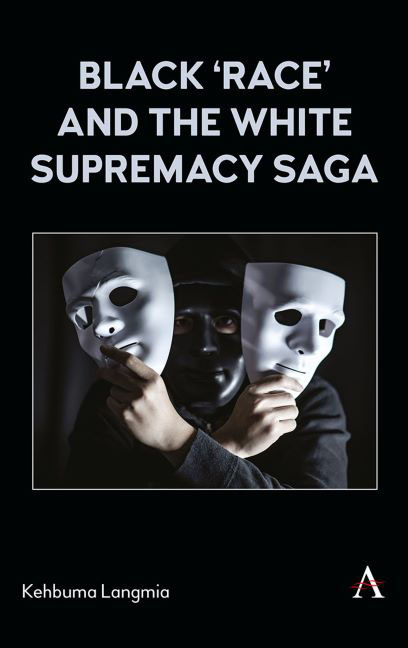Book contents
- Frontmatter
- Dedication
- Contents
- Foreword
- Acknowledgments
- 1 The Shifting Sands on the Feet of Black People
- 2 Shadow of Colonialism and Slavery on Black People
- 3 Black People and COVID-19
- 4 Africans and Mass Immigration
- 5 Blacks and the Politics of Demo-“Crazy” and Development
- 6 Victimhood and the Identity Crisis: Blacks and the Epistemology of Freedom
- 7 Black Status and Physical Threats
- 8 The Epistemology of Black Poverty, Resistance, and Resilience
- 9 The Politics of Europe/China Dependency on Africa
- 10 False Western Epistemological Dominance
- References
- Index
8 - The Epistemology of Black Poverty, Resistance, and Resilience
Published online by Cambridge University Press: 13 April 2024
- Frontmatter
- Dedication
- Contents
- Foreword
- Acknowledgments
- 1 The Shifting Sands on the Feet of Black People
- 2 Shadow of Colonialism and Slavery on Black People
- 3 Black People and COVID-19
- 4 Africans and Mass Immigration
- 5 Blacks and the Politics of Demo-“Crazy” and Development
- 6 Victimhood and the Identity Crisis: Blacks and the Epistemology of Freedom
- 7 Black Status and Physical Threats
- 8 The Epistemology of Black Poverty, Resistance, and Resilience
- 9 The Politics of Europe/China Dependency on Africa
- 10 False Western Epistemological Dominance
- References
- Index
Summary
The Christian Bible has taught its believers that blessed are the poor, and as a result, they shall become the rightful inheritance of the kingdom of God. The implication is that the rich shall not be entitled to any administrative benefits should they even be admitted into that “kingdom.” This is the machinery of “hope” that keeps African Christians subservient to their church teachings. This religious dogma is sown into the minds of believers right from infancy. The economically poor are exalted and revered by prelates and clergymen, and at the same time, the church requires financial contributions from the poor and needy to keep the organization afloat. The concept of the widow's mite is a political dogma to promote donations from the very helpless that deserve aid from the affluent. Ngugi wa Thiong’o captures the state of mind of the materially poor by stating that “even in social life, poor means being extremely creative and experimental in order to survive. The homeless try to make a home anywhere, even in places that do not suggest a home” (Ngugi 2012, p. 3). The society has largely frowned on the poor. They are scorned, dejected, and rejected by the economically empowered folks in the community. But unbeknownst to those who ascribe supremacy over the power, those who are materially poor, according to Ngugi wa Thiong’o are creative and experimental. This goes without saying, therefore, that the materially rich, and in this case, the White Westerners are less creative and experimental because the comfort of their opulence and capitalistic influence in a given society and context absolved them of intelligent creative imagination to see right from wrong or good from evil. Therefore, the reservoir of ignorance resides in the mind of the rich, and since it is often said that ignorance is bliss and folly to be wise, the poor in material possessions are supremely qualified to change the world for the better. But they have never been given the chance and the voice since the echo of their voices reverberates in the ghetto and circles only among the downtrodden. This has been the fate of the Black person on planet Earth.
- Type
- Chapter
- Information
- Black 'Race' and the White Supremacy Saga , pp. 119 - 132Publisher: Anthem PressPrint publication year: 2024

